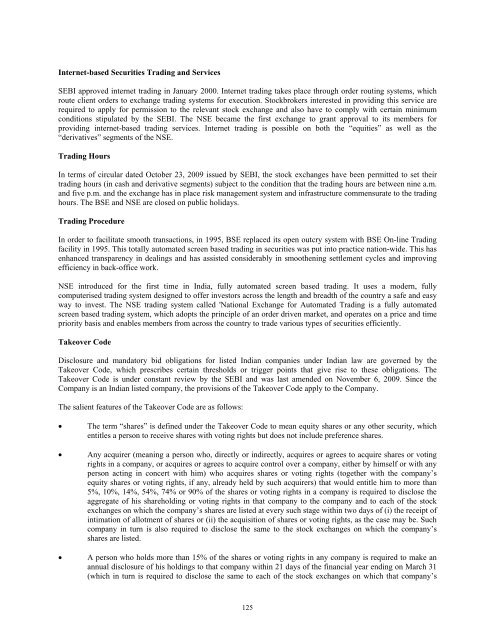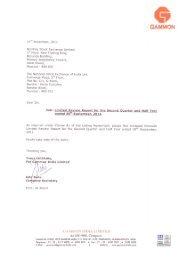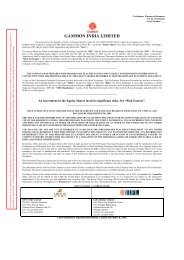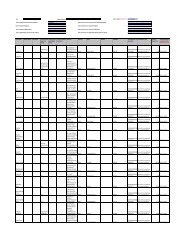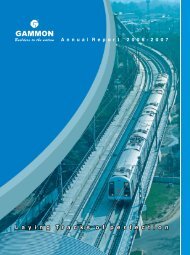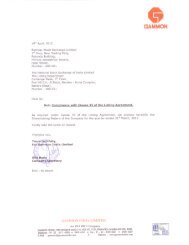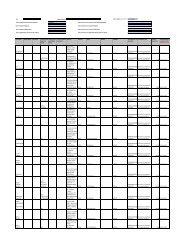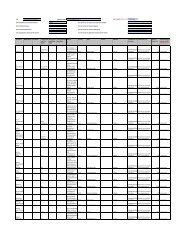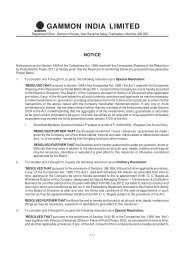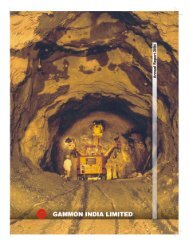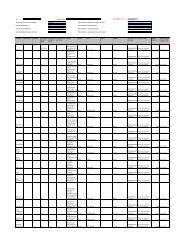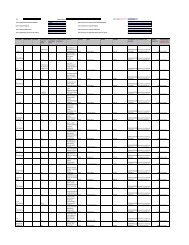GAMMON INDIA LIMITED
GAMMON INDIA LIMITED
GAMMON INDIA LIMITED
Create successful ePaper yourself
Turn your PDF publications into a flip-book with our unique Google optimized e-Paper software.
Internet-based Securities Trading and Services<br />
SEBI approved internet trading in January 2000. Internet trading takes place through order routing systems, which<br />
route client orders to exchange trading systems for execution. Stockbrokers interested in providing this service are<br />
required to apply for permission to the relevant stock exchange and also have to comply with certain minimum<br />
conditions stipulated by the SEBI. The NSE became the first exchange to grant approval to its members for<br />
providing internet-based trading services. Internet trading is possible on both the “equities” as well as the<br />
“derivatives” segments of the NSE.<br />
Trading Hours<br />
In terms of circular dated October 23, 2009 issued by SEBI, the stock exchanges have been permitted to set their<br />
trading hours (in cash and derivative segments) subject to the condition that the trading hours are between nine a.m.<br />
and five p.m. and the exchange has in place risk management system and infrastructure commensurate to the trading<br />
hours. The BSE and NSE are closed on public holidays.<br />
Trading Procedure<br />
In order to facilitate smooth transactions, in 1995, BSE replaced its open outcry system with BSE On-line Trading<br />
facility in 1995. This totally automated screen based trading in securities was put into practice nation-wide. This has<br />
enhanced transparency in dealings and has assisted considerably in smoothening settlement cycles and improving<br />
efficiency in back-office work.<br />
NSE introduced for the first time in India, fully automated screen based trading. It uses a modern, fully<br />
computerised trading system designed to offer investors across the length and breadth of the country a safe and easy<br />
way to invest. The NSE trading system called 'National Exchange for Automated Trading is a fully automated<br />
screen based trading system, which adopts the principle of an order driven market, and operates on a price and time<br />
priority basis and enables members from across the country to trade various types of securities efficiently.<br />
Takeover Code<br />
Disclosure and mandatory bid obligations for listed Indian companies under Indian law are governed by the<br />
Takeover Code, which prescribes certain thresholds or trigger points that give rise to these obligations. The<br />
Takeover Code is under constant review by the SEBI and was last amended on November 6, 2009. Since the<br />
Company is an Indian listed company, the provisions of the Takeover Code apply to the Company.<br />
The salient features of the Takeover Code are as follows:<br />
The term “shares” is defined under the Takeover Code to mean equity shares or any other security, which<br />
entitles a person to receive shares with voting rights but does not include preference shares.<br />
Any acquirer (meaning a person who, directly or indirectly, acquires or agrees to acquire shares or voting<br />
rights in a company, or acquires or agrees to acquire control over a company, either by himself or with any<br />
person acting in concert with him) who acquires shares or voting rights (together with the company’s<br />
equity shares or voting rights, if any, already held by such acquirers) that would entitle him to more than<br />
5%, 10%, 14%, 54%, 74% or 90% of the shares or voting rights in a company is required to disclose the<br />
aggregate of his shareholding or voting rights in that company to the company and to each of the stock<br />
exchanges on which the company’s shares are listed at every such stage within two days of (i) the receipt of<br />
intimation of allotment of shares or (ii) the acquisition of shares or voting rights, as the case may be. Such<br />
company in turn is also required to disclose the same to the stock exchanges on which the company’s<br />
shares are listed.<br />
A person who holds more than 15% of the shares or voting rights in any company is required to make an<br />
annual disclosure of his holdings to that company within 21 days of the financial year ending on March 31<br />
(which in turn is required to disclose the same to each of the stock exchanges on which that company’s<br />
125


